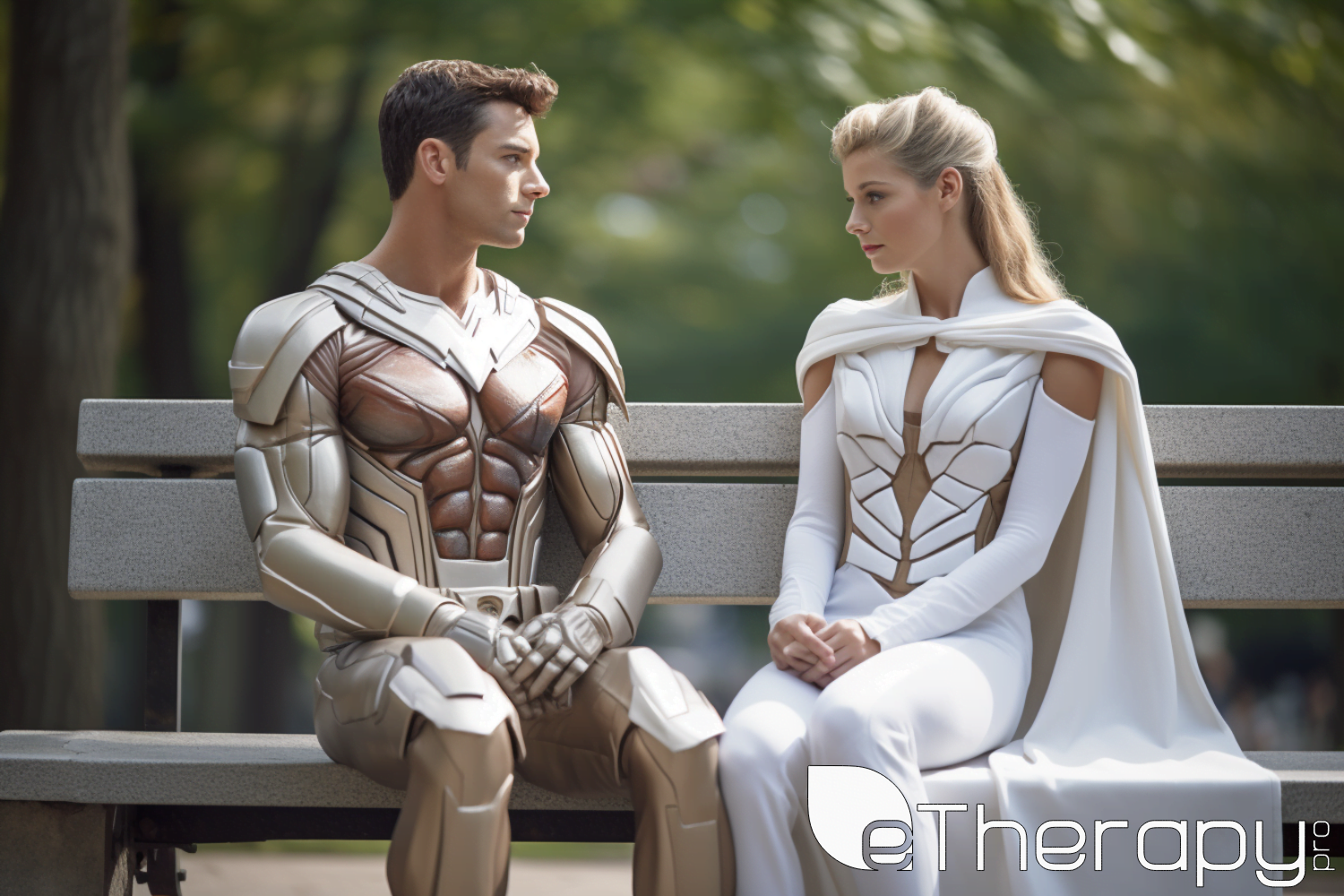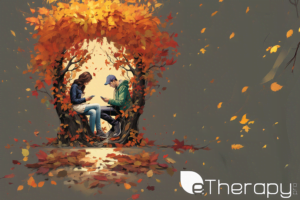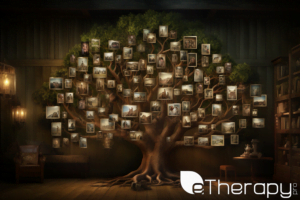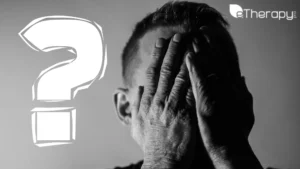 In every classic tale, there’s often a hero — someone who swoops in to save the day. But what happens when this age-old narrative seeps into our romantic relationships? From ancient myths to modern movies, the allure of the savior has been deeply entrenched in our psyche. But why do we, time and again, seek heroes in love? Is it the emotional validation, the promise of stability, or the ideal of romantic love that’s portrayed in pop culture? In this article, we’ll dive into the Savior Complex, its roots, its implications, and its impact on our quest for love.
In every classic tale, there’s often a hero — someone who swoops in to save the day. But what happens when this age-old narrative seeps into our romantic relationships? From ancient myths to modern movies, the allure of the savior has been deeply entrenched in our psyche. But why do we, time and again, seek heroes in love? Is it the emotional validation, the promise of stability, or the ideal of romantic love that’s portrayed in pop culture? In this article, we’ll dive into the Savior Complex, its roots, its implications, and its impact on our quest for love.
The Allure of the Savior Complex
The romantic allure of playing the hero or being rescued is as old as time. This appeal, deeply rooted in various facets of human culture and psyche, continues to shape our modern relationships in profound ways.
Rooted in Ancient Myths
Long before cinema or literature, ancient tales painted pictures of brave knights, distressed damsels, and mighty deities. Such stories, spanning cultures and eras, have sewn the idea of a savior deep into our collective consciousness, setting early blueprints for what many view as romantic ideals today.
The Psychological Need for Validation
Every human yearns to be seen, understood, and valued. This emotional need often finds an outlet in relationships: either in the role of the savior or the saved. For many, playing these roles provides a deeply fulfilling emotional connection.
Pop Culture’s Influence
Our modern tales, from blockbuster movies to chart-topping songs, continue the narrative of rescuers and the rescued. These stories not only influence our entertainment choices but also shape our perceptions, blending the threads of heroism with those of romance.
As Erik Erikson aptly observed, Quote:
In the social jungle of human existence, there is no feeling of being alive without a sense of identity.
Pop culture, in many ways, influences and reinforces this identity.
Stability and Dependability
In an ever-evolving world, there’s an innate quest for constants. The savior in relationships often becomes this beacon, symbolizing a source of enduring stability amidst life’s tumultuous waves.
Consequences and Realities in Savior Complex
The savior complex isn’t merely a romanticized ideal; it’s deeply intertwined with societal narratives, individual histories, and personal self-perceptions. But while it may offer a comforting narrative of protection and care, its long-term consequences often deviate from the fairy-tale ending. Let’s first understand the underlying factors before examining the repercussions.
Cultural and Societal Factors
Society has a penchant for romanticizing the “knight in shining armor.” These societal narratives often paint a picture where being “saved” by a loving partner is the pinnacle of romantic success. This portrayal can influence one’s aspirations, making them more susceptible to seeking or maintaining savior dynamics, believing they align with the ultimate romantic love.
Patterns of Codependency
Relationship histories play a pivotal role. If an individual has consistently been in codependent relationships, they might be naturally inclined towards partners who exhibit the Savior Complex. The sense of familiarity can make this dynamic comforting, even if it isn’t necessarily healthy.
Reinforcing Low Self-Esteem
Here’s an intricate twist: some find solace in being “rescued” not because it elevates them, but because it aligns with their own perceived inadequacies. When a partner is always in the role of the “savior” or the “fixer,” it can inadvertently reaffirm feelings of not being “good enough” alone, perpetuating a cycle of low self-worth.
Having established these foundational elements, the stage is set to delve deeper into the intricate repercussions of this complex.
Perceived Versus Real Stability
In the narrative of the savior complex, both parties— the “savior” and the “saved”— face unique sets of challenges that, over time, can erode the foundation of their relationship. While the savior might find themselves ensnared in a never-ending cycle of rescuing, the saved might struggle with recognizing their intrinsic worth outside the confines of this dynamic.
Illusion of Security:
On the surface, the savior appears to offer a solid rock of stability. Yet, beneath this facade often lie temporary fixes—solutions that might address immediate concerns but sidestep deeper issues. Over time, what seemed like unyielding support might reveal itself as fleeting, questioning the genuine security of the relationship.
The Savior’s Exhaustion:
For the one always playing the hero, the relentless need to “fix” can lead to emotional and mental burnout. This incessant drive to rescue can become an overwhelming responsibility, leaving the savior feeling trapped in their own self-imposed role, with little room to cater to their own needs or emotions.
Erosion of Self-Worth for the Saved:
As the one perpetually being rescued, the saved might confront an internal battle with self-worth. When the foundation of a relationship centers around being “fixed,” it becomes challenging for the individual to see their value beyond the lens of their vulnerabilities. Over time, this can lead to dependence and a diminished sense of self-reliance.
Moving Towards Healthier Love Dynamics
Navigating past the pull of the savior complex paves the way for more fulfilling, equal partnerships. Here’s how individuals and society can foster healthier dynamics in love and relationships:
Recognizing the Signs
One of the initial steps towards change is self-awareness. By understanding and recognizing:
- Over-dependence on a partner for emotional stability.
- A consistent pattern of choosing partners in distress.
- Feeling a compulsion to ‘rescue’ or ‘fix’ a partner.
Individuals can begin the journey towards healthier relationships.
The Role of Therapy and Counseling
In today’s interconnected age, seeking help has never been more accessible:
- Therapists, whether in-person or through online platforms like eTherapyPro, provide a safe space to unpack relationship dynamics.
- Counseling can offer tools and strategies to foster more balanced love dynamics, with the added convenience of online sessions for those who prefer digital interactions.
- Group sessions, both offline and online, can provide community and shared experiences, creating a support network for individuals on their journey.
- Whether face-to-face or through an online medium, professional intervention can be a crucial asset in breaking free from the savior complex.
Cultivating Independence and Self-Worth
A robust love relationship thrives on mutual respect and independence. To cultivate this:
- Invest time in personal hobbies and passions.
- Regularly engage in self-reflection and self-affirmation practices.
- Set boundaries to maintain individuality within the relationship.
- Strengthening one’s self-worth lays the foundation for a healthier partnership.
Shifting Societal Narratives
Be the change that you wish to see in the world. – Mahatma Gandhi
Change on a macro level begins with reimagining how love stories are presented:
Advocate for media that promotes balanced relationship dynamics.
Support authors, filmmakers, and artists who challenge the savior trope.
Engage in conversations that stress mutual respect and growth in relationships.
Conclusion of Savior Complex
The allure of the savior complex, deeply rooted in ancient myths and further propelled by modern pop culture, has painted a skewed picture of love and relationships for many. This dynamic, often stemming from a desire for validation or a sense of stability, can lead to emotional exhaustion, codependency, and erosion of self-worth. However, by recognizing the signs and shifting towards healthier love dynamics— bolstered by personal growth, therapy, and a change in societal narratives — individuals can pave the way for relationships grounded in mutual respect, understanding, and true partnership. In this journey, it’s vital to remember that each person has the intrinsic power to define their love narrative, breaking free from age-old tropes and forging paths built on authenticity and mutual respect.









